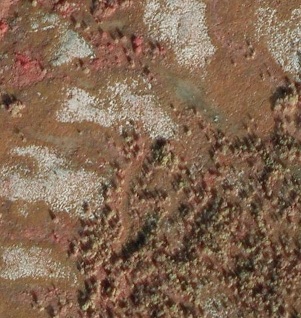Sentinel4Nature
Sentinel4Nature
Monitoring and mapping of environmental gradients using Sentinel data in combination with supplemental data
Traditionally, the aim of using remote sen sing in the context of nature conservation and environmental monitoring / ecosystem management has been to classify remotely sensed data into e.g. vegetation or land cover classes. Mapping discrete types of nature however is already challenging when conducted manually due to the fractal characteristic of nature and the very often gradual changes in pattern. For that reason vegetation mapping using satellites like Landsat often results in mapping products with limited benefit when applied to complex and heterogeneous vegetation cover.
sing in the context of nature conservation and environmental monitoring / ecosystem management has been to classify remotely sensed data into e.g. vegetation or land cover classes. Mapping discrete types of nature however is already challenging when conducted manually due to the fractal characteristic of nature and the very often gradual changes in pattern. For that reason vegetation mapping using satellites like Landsat often results in mapping products with limited benefit when applied to complex and heterogeneous vegetation cover.
The main objective of this project is to develop and advance a novel approach to remote sensing, which focuses on monitoring basic environmental gradients and properties (covering physical, chemical and biological components as well as their interactions), rather than discrete mapping of vegetation classes. Monitoring of environmental gradients (and their changes) can provide managers and researchers working with the environment with more valuable information because:
- Usually, characteristics of relevant gradients change before vegetation patterns change, which means it can provide early warnings, for sites where further actions can be targeted.
- Environmental gradients can be indicators for the quality of different nature types, which is why modeling them will provide additional information about e.g. mapped nature types of special interest.
- Information on environmental gradients has a broader scope of possible applications (e.g. pattern of snow cover in arctic or alpine areas is not only important for vegetation structure but also for the arctic or alpine animal communities).
- Monitoring of environmental gradients will not only help policy and decision makers but also scientists in order to identify reasons or drivers of change.
Latest project news
|
Updated date: Fredag, august 29, 2014 - 08:58 |


 Hvordan komme til NR
Hvordan komme til NR Del på sosiale media
Del på sosiale media Personvernerklæring
Personvernerklæring